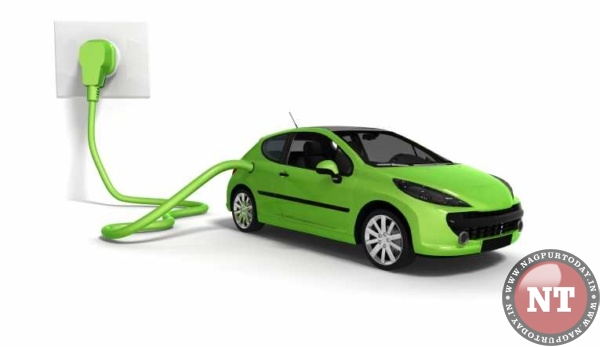Current Global warming and climate change are the effects of policy implementation for certain geography without sustainable life cycle analysis. It is also a lack of sustainable social development, if the masses are empowered then they would question a policy that would put their life and livelihood at stake.
We need to think indigenously.
In my last write up I had mentioned Sustainable Business model is not conducive without a sustainable social development. If someone would like to review it please see the links belowhttps://www.nagpurtoday.in/sustainable-business-models-a-buzzword-in-india-now/11291521, https://www.entrepreneur.com/article/323712
Sustainability is connected geo politically. In the middle east Petrol and Diesel (fossil fuel) could be argued as sustainable business for this geography . Fossil Fuel is the only or major lively hood for the population from that part of the world.
If we ask the question is it the same for India, our direct answer would be “NO.”
Complete Life Cycle & Self – Sustainability
Sustainability in business has a deep relation to self-sustainability that is possible only when one is in control of the complete life cycle of a product.
EVs are great substitute to the fossil fuel powered vehicles but are EVs the only substitute for the Indian Market
In India the current “TREND” is Electric Vehicle (EV). So, let us bring Electric Vehicle into the Indian Geo-Economic Strada.Has the complete lifecycle sustainability of battery run vehicles studied in terms to the Indian population and circumstances? Can EV Vehicles run on indigenously built batteries.
Is it self-sustainable? Can India Make EV? Or will we (India) be dependent on other international state actors to power the EV shells (bodies of vehicles) we make in India.
Unfortunately, India is not self-sustainable to make its own battery industry. India does not have a resource for Cobalt which is the main heavy metal needed to make a lithium battery. Will the trading of fossil fuels (petroleum and diesel) be replaced to Cobalt and become the next agenda on the Indian GDP.
Today our major foreign reserves are used in trading fossils fuels only to be replaced by cobalt in the near future, if EVs are kept as the only substitute to fossil fuels, is this is sustainable business model for India?
China is in the forefront in battery development only because they have a part ownership in most of the countries with cobalt reserves.
Operating EV in India
The sheer number of vehicles in India are humongous two hundred and eighteen million already on road according to CEIC data and it is only getting bigger by the day.
Space and Time: A fast charge for EV needs somewhere from 10 to 15 minutes. That means space is going to be a big constraint, if vehicles end up waiting to be charged it would need thousands and thousands of charging station and is this sustainable, is this an affordable footprint for the growing India?
Manufacturing and Waste
If we come with an instant battery replacement (swapping), instead of charging stations that means the country needs to manufacture at least two batteries for every vehicle only then there would be a rotation. The initial discussion still persists how will we manage the raw material for the batteries?
This leads to next question How would we manage the huge battery waste that we will have at our hands after the lifecycle of the product.
India currently faces a big challenge to meet the food and bio degradable waste management. Bio degradable wastes go easy on human health but same is not the case with battery and other hazardous waste. Waste batteries don’t just dissolve in the earth, we would need extra foot print to recycle them. Is this again sustainable and healthy for our masses?
Reality and Promise:
Indian Streets are congested and heavy traffic is a normal scene, we do not follow the globalised standards in vehicle driving etc this leads to the next problem mileage of the electric vehicles. Electric buses are promised a millage above 250 kms on international standards, in reality that is not case in India.
One live case in Kerala, if interested please check the link.
https://www.thehindu.com/news/cities/Kochi/two-electric-buses-run-out-of-charge-on-day-1/article26369225.ece
Electric vehicles are good but might not be the solution for the entire India.
Let us not only look at what is commercially understandable for the Indian folks, all that rings are the Tesla Cars and the Baidu buses.
Let us look into hydrogen fuels. What is the most interesting aspect of Hydrogen fuels in Indian context, that it can be totally manufactured in India.
With innovations like seawater to be converted into hydrogen fuels we will can have a safe economy that fuels the countries needs and be self-sustainable.
We would not have to trade any raw material to make hydrogen fuels and that means more foreign reserves, better economy and a rising GDP.
No Waste to be managed
Hydrogen fuel cell vehicles should draw support from environmentally conscious consumers because the technology produces no carbon dioxide emissions. Fuel cells also are user-friendly, furl pumping stations similar to fossil fuels and can travel a comparable distance to (fossil fuel) gasoline-powered vehicles.
It has decade long testing and results are great for the India market. Honda (Japan) has also made significant technological advancements in fuel cell operation in both hot and sub-freezing temperatures and safety regulations, since the introduction of its first-generation fuel cell vehicle, the FCX, in 2002. as a real technological breakthrough in the areas of design, sedan packaging, assembly line manufacturing, and fuel cell stack size and efficiency, winning “World Green Car of the Year.”
Initially manufacturing Hydrogen was considered expensive but with advent of sea water to hydrogen & also waste water to hydrogen. I would state we have the way; it is just a matter of inducing the will. One more opportunity for sustainable business, better livelihood and one more aspect to Make India Great again.
By Dennis Abraham Thazhamon













